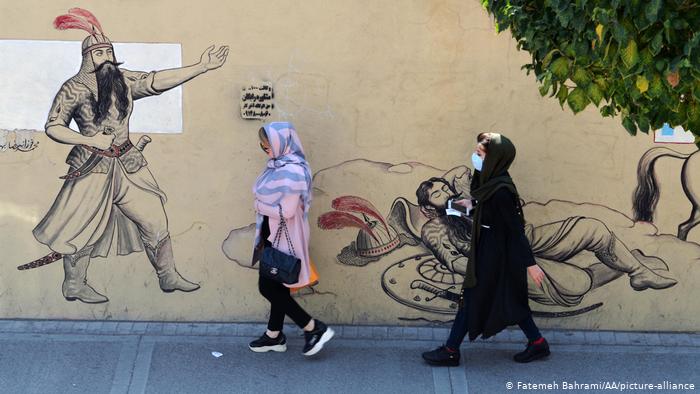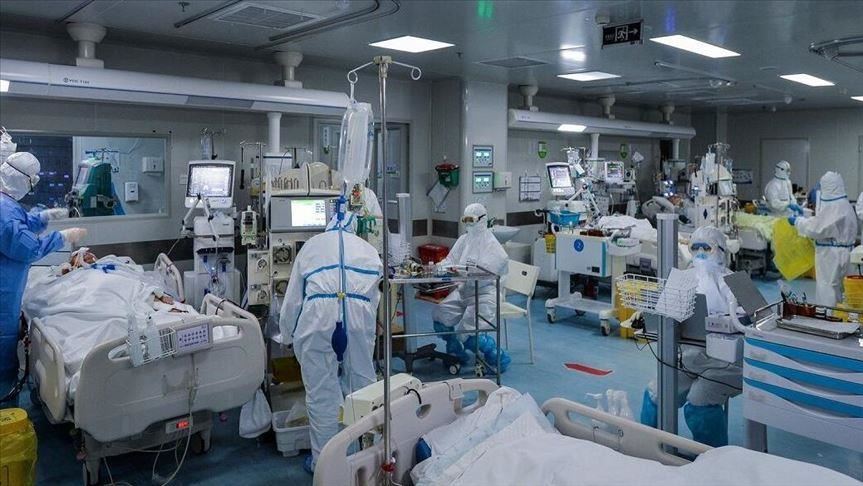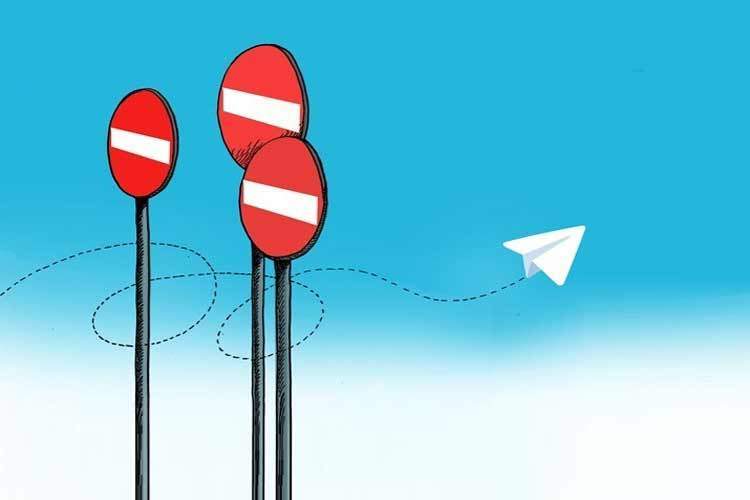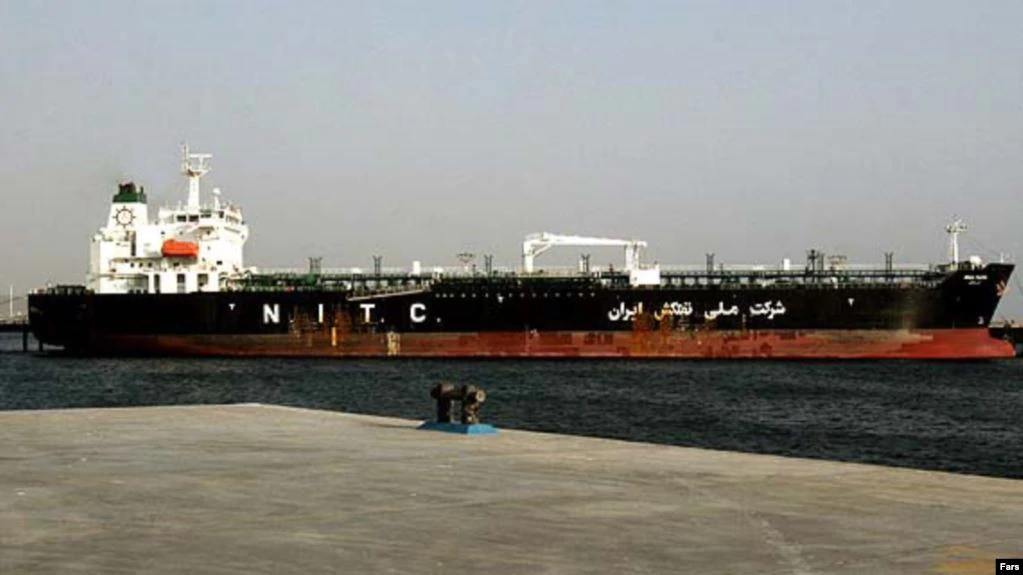
Amending or Sabotaging the Election Law?
The editorial of Iran newspaper, written by Secretary-General of the Jumhuriyat [Republic] Party Rasoul Montajabnia, asserts that the changes that the new hardline Parliament in Iran is going to make to the presidential election law is “reverse engineering” the outcome of the election and will decrease public participation.
It is the lawmakers’ right to make legislation. But that doesn’t mean that any measures taken in this regard would result in a fair law. This is true of the Parliament’s plan to amend the law for the presidential election.
Iran’s election system has fundamental problems and shortcomings, and fixing these problems must be one of the lawmakers’ priorities. In recent years Iranian Supreme Leader Ali Khamenei himself declared certain policies to change the election system.
Interestingly, contrary to common perception, this is not just a political issue, but has a direct impact on people’s livelihood and lives. Amending and redefining the election system must result in representation for the majority of people and representing their demands. Currently, the majority of economic problems in Iran are because of the decisions made in defiance of public demands.
In the process of enacting legislation, the Parliament has not enhanced the election standards; rather, it has undermined these standards. As such, the Parliament’s plan to change the presidential election law is not “amending” but “sabotaging” the current law. The changes that the lawmakers have in mind will limit people’s right to choose, making the outcome of the presidential election far less representative of the genuine demands of the society.
A close look at the details of the Parliament’s plan shows that it creates a lot of obstacles and conditions for those who want to run in the presidential election, making it impossible for the people to make meaningful choices. Moreover, the details of the plan indicate that the Parliament is undertaking “reverse engineering” with regard to the election process. As such, they have made up their minds regarding their desired candidate, and now they are changing the election laws so that this person is elected.
The outcome of these changes will weaken public participation in the election, thus further deteriorating the government-nation relationship.
Suffering From Sanctions and Officials’ Children Building Towers in Turkey!
The editorial of Aftab Yazd focuses on the adverse effects of Iranian people investing their money in Turkey and the role that the children of officials (knows as “Aghazadeh”) are playing in this.
Following the news of the construction of buildings in Turkey by some Aghazadehs, now the issue of encouraging people to buy property in Istanbul has become very sensitive. On most Persian-speaking television channels, websites and social media, there are a lot of ads in this regard, telling Iranian people to not invest in Iran and to take their money to Turkey and buy an apartment in these towers. Even the option of giving residency to buyers is offered so that more people are encouraged to invest in Turkey.
Despite the decrease in buying property in Turkey because of the coronavirus outbreak, the statistics show that Iranians are still on top of the list of buyers. According to a report by IRNA, Iranian citizens are on top of the list of foreigners buying property in Turkey.
Of the 3,036 properties bought by foreigners in Turkey, Iranians have bought the most with 465 purchases. Next in line are Iraqis with 426, Russians with 227 and Afghans with 184 real estate purchases in the country.
High demand for buying residential places in Turkey, it must be noted, has made it possible for profit-seeking individuals to defraud people in many ways.
This raises many questions in this regard: what is the relationship between these luring ads and the Aghazadehs? What should Iranians who have made losses or have been defrauded do? If these Aghazadehs have such capabilities, why don’t they build towers in Iran? What is the role of their fathers in their success in Turkey? More importantly, what is the relationship between officials extolling the virtues of a simple life, bearing the sanctions, and building towers in rival countries in the region?
Make the Vaccination Process Completely Transparent
With the possibility of COVID-19 vaccines being imported to Iran, many are raising questions not just about its reliability, but also about the way they are going to be distributed and who is going to receive them first. The editorial of Arman Melli asserts that the government must make the process of vaccine distribution completely transparent and prevent any fraud in this regard.
One of the biggest tests ahead for the Iranian government and the establishment is the issue of transparency in distributing COVID-19 vaccines. 19 million doses have been purchased. It is the Iranian people’s right to be fully informed as to who will be vaccinated first and how many doses of the vaccine go to each province, each city, each treatment center, etc.
In this age of the internet, it is not difficult to launch a website where all the data related to the COVID-19 vaccine are transparently presented, reassuring people that vaccines are distributed without any discrimination and as efficiently as possible.
Not even a single dose of the vaccine must go to the black market. And there should be no way to refill the vaccines’ vials and sell them to people on the black market in the name of the genuine vaccine. Managing this process requires careful measures. Otherwise, the issue of vaccinations too will turn into a conundrum and a crisis, resulting in further public distrust.
We should be careful not to allow the COVID-19 vaccine to further erode the public trust. Vaccinations should not become another example of discrimination, mismanagement, and the rule of “some are more equal than others” in Iran.
People Pay the Price for the Delay in Joining the FATF
The editorial of Jahan Sanat, penned by former diplomat Qassem Mohebali, urges that Iran should join the Financial Action Task Force (FATF), arguing that it is the Iranian people who are paying the price for any delay in this regard.
By order of the Supreme Leader Ali Khamenei, the period for reviewing the FATF bills in the Expediency Discernment Council has been extended. Those who disagree with ratifying the bills are trying to create obstacles in this regard once again.
But joining the FATF is inevitable. If there is going to be banking in Iran, as well as the legal and transparent transfer of money on domestic and international levels, we must accept that the FATF has created certain regulations that must be observed.
So, it is a necessity for Iran to join the FATF, and like it or not, Iran will join it. But the more it is postponed, the more costly it will become, and it is the Iranian people who will pay the price for this delay. Joining the FATF is one of the requirements of the banking system, but some individuals who benefit from the lack of transparency and the black market are worried about it and are against it.
It is incumbent upon the Iranian government and the establishment to abolish the black market and not support it. Some individuals benefitting from US sanctions and the lack of transparency in Iran’s banking system are influential in decision-making apparatuses and have prevented Iran from joining the FATF. And that has already been very damaging to Iran’s economy and people.
These individuals’ remarks and efforts against the FATF might once again influence the decision-making entities. Perhaps, with Khamenei’s order to extend the period for reviewing the FATF bills in the Expediency Discernment Council, the members of the council might show more flexibility in this regard this time.
The supreme leader’s order is an important step, because if Iran is going to join the FATF, then those benefitting from US sanctions, smuggling, and the black market must be stopped. Ratification of the bills and joining the FATF is definitely an important step and will help Iranian policymakers to bring the nuclear deal back to life and lift US sanctions.
Jahan Sanat

IRGC Top Official Warns Members and Basij not to get “Foreign” Coronavirus Vaccine; Larijani Warns About US Vaccination “Plot” Against Iran

Purchasing or not purchasing coronavirus vaccines from other countries has become a matter of controversy among Iranian officials, turning this health issue into a political-security one.
One of these officials is Mohammad Reza Naghdi, deputy head of the IRGC’s coordination office, who has warned the members of this military institution and the Basij against receiving foreign coronavirus vaccines, saying the IRGC would not participate in the imported vaccination program.
Laying emphasis on the tainted records of some coronavirus vaccine producers, Naghdi noted: “We do not recommend the IRGC and Basij personnel to receive foreign coronavirus vaccines due to its special mechanism.”
Naghdi’s words came after Supreme Leader Ali Khamenei accused America of creating the coronavirus while rejecting Washington’s offer to help Iran with combating the disease. “It is said that a part of this virus was made especially for Iran,” Khamenei claimed in March.
Moreover, Javad Larijani, an Expediency Council member and president of the Institute for Research in Fundamental Sciences, recently stated that Iran’s purchasing the US-made vaccines is “one of the programs of the US command against the Islamic Republic [of Iran].” Larijani added that buying vaccines necessitates payments in US dollars and would bring Iran down to its knees: “We should kneel and bow to get some vaccines from them.” Larijani also stressed that Iran’s domestic vaccines have no scientific problems while saying that he himself would be among the first to receive one.
Meanwhile, the official statistics show that more than 54,000 Iranians have lost their lives due to COVID-19 and nearly 1.2 million have contracted the disease so far. Not to mention that the actual number of coronavirus patients and victims is said to be much higher than the official tally.
Iranian Pharmacists: How Dare Officials Claim Iran can Produce the Coronavirus Vaccine?

167 Iran-based pharmacists have written a letter to the country’s Food and Drug Administration, saying producing the coronavirus vaccine in Iran is “rather a joke,” asking: “How do we dare claim that we can make such a vaccine?”
The letter also criticizes the “horrifying lack of plans” regarding providing coronavirus vaccines to the Iranian people. In their letter, these pharmacists ask the Food and Drug Administration to immediately begin purchasing and importing the vaccines. They also criticize those without pharmaceutical expertise making comments on pharmaceutical issues merely to make an excuse for not buying the vaccine.
Iranian Health Ministry officials claim the reason for not buying the Pfizer-BioNTech COVID-19 vaccine is that it needs to be kept at a temperature between -80°C and -60°C. The pharmacists, however, urge that Iran can easily buy several deep freezers to take care of this issue, adding, “If we cannot even purchase some freezers to transfer and store the vaccines, how can we provide the equipment for producing vaccines, especially for 80 million people?”
Meanwhile, Iranian officials refuse to stop making contradictory remarks about buying coronavirus vaccines. Head of Iranian Red Crescent Society Karim Hemmati announced that 150,000 Pfizer-BioNTech vaccines would be soon donated to Iran by some donors residing abroad. Nonetheless, a member of the country’s coronavirus combat headquarters stated that Iran has already notified the WHO that it has no need for this vaccine as it is unable to transfer and store it. Hemmati also said that Iran has bought 1 million vaccines from China, whereas the head of the Iran-China Chamber of Commerce remarked that no vaccines were bought from China.
And yet, COVID-19 has not stopped taking lives in Iran: 54,814 victims and 1,206,373 patients, according to the latest official statistics – however, these official figures are not considered accurate.
IRGC Admits Its Policy of Filtering Social Media Has Failed

The IRGC-affiliated Javan daily newspaper has published a report saying that filtering has had no effect on Iranians who use Telegram messenger – which has 47.250 million users and currently ranks second among messaging apps used by Iranians. WhatsApp is the most popular messenger app in Iran, with 47.700 million users.
In addition to Telegram and WhatsApp, Iran’s state-approved Soroush messenger has only 2.8 million users in the country. In its recent report, Javan says people do not use Soroush as they are worried about their personal information being divulged. Javan also referred to Telegram founder Pavel Durov who recently noted that this platform might charge its users for new services in 2021. Javan said that in that case “a great deal of foreign currency would leave the country and we need to come up with a solution.”
Secretary of Iran’s Supreme Council of the Cultural Revolution Saeed Reza Ameli had previously said the policy of filtering has defeated its own purpose, resulting in the addition of more than 30 million VPNs in Iran. Following the nationwide protests in 2017, Iran establishment repeatedly highlighted the role of Telegram in spreading protests and temporarily filtered it to curb the unrest. In May 2018, however, a judge – who later was sentenced to prison on charges of corruption – issued an order to permanently filter Telegram.
Meanwhile, 40 MPs presented a bill called “Organizing Social Media” in the Parliament, urging the use of domestic social media platforms instead of foreign ones. According to this bill, those who distribute VPNs should be sentenced with fines and imprisonment.
Reporters Without Borders (RSF) has named Iran’s Cyberspace Supreme Council as among the 20 worst digital predators in 2020.
17 Provinces at Risk of Malnutrition; Massive Drop in Iran’s Exports in 2020

In its latest report, the Statistical Center of Iran called the performance of half of the country’s provinces “poor,” urging that 17 provinces are at risk of facing malnutrition.
The report reviews the rate of inflation in 17 provinces for the last month, saying that inflation for “foods, beverages, and tobacco” was more than 57.9 percent, which means that these provinces’ populations must have paid 57.9 percent more for food compared to the same period last year.
The report urges that the increase in food prices, along with the increase in unemployment after the outbreak of coronavirus which reached 18.5 percent during the summer, has made people concerned over the decline in the value of the livelihood basket.
The increase in prices has been mainly in the category of essential goods.
In the meantime, there has been a massive drop in Iran’s exports in 2020. Statistics published by Iran’s Customs Administration regarding Iran’s main trade partners show a substantial drop in their imports from Iran.
China issued a report on purchasing Iran’s oil, showing that during the first 11 months of 2020, it imported 75,000 bpd which is equal to one fourth of China’s imported oil from Iran during the same period last year.
During the same period in 2020, South Korea registered only $8 million worth of imports from Iran, while this number was more $2.1 billion during the same period last year.
The latest statistical report by Turkey shows that during the first 10 months of 2020, it had $1.7 billion worth of exports to Iran which shows a 33 percent decrease compared to the same period last year, while its imports from Iran dropped from $3.4 billion to $880 million.
The European Union’s statistics indicate that during the first 10 months of 2020, it had only 6.4 million euros worth of of imports from Iran, which shows a 6.5 percent increase compared to last year, but is much less than 2018 during which imports from Iran amounted to 9 million euros.
Iraq, the UAE, and Afghanistan have not yet released their trade reports with Iran for the current year.
